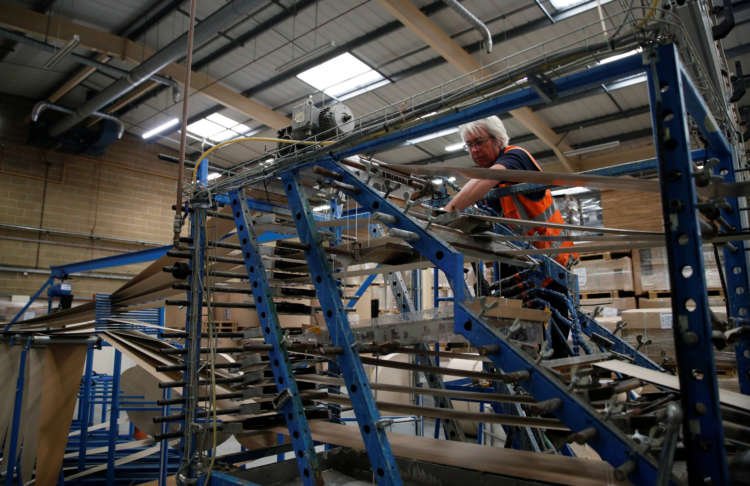UK factories fear shortage of materials and workers as COVID and Brexit hit
Published by linker 5
Posted on January 22, 2021
3 min readLast updated: January 21, 2026

Published by linker 5
Posted on January 22, 2021
3 min readLast updated: January 21, 2026

By David Milliken and William Schomberg
LONDON (Reuters) – British manufacturers’ concerns about shortages of low-wage workers and supplies have risen the most in almost 50 years, a survey showed on Thursday, as they wrestle with COVID-19 disruptions and new customs rules after leaving the European Union.
A measure of how manufacturers feel about their competitiveness relative to EU rivals deteriorated at the fastest pace on record, meanwhile, and companies expected output and orders to decline, the Confederation of British Industry said of its survey results.
“Manufacturers across the board are continuing to battle major headwinds,” CBI chief economist Rain Newton-Smith said.
A monthly index of new orders for January dropped to -38 from -25 in December, and a quarterly measure of optimism sank to -22 from zero in October.
However, export orders bucked the broader trend, with this balance rising to its least negative since March, though it was still below its long-run average.
“(This) suggests that EU firms are not hesitating to source goods from the UK, despite the extra red tape and rise in haulage costs,” Samuel Tombs of Pantheon Macroeconomics said.
The survey adds to signs that Britain’s economy will contract in early 2021, hit by a surge in coronavirus cases and restrictions, and new bureaucracy for trade with the EU.
Manufacturing accounts for about 10% of Britain’s economy.
The much bigger services sector has been hit far harder by social-distancing measures and is also facing new barriers to trade with the EU.
Separately, a new experimental measure of consumer spending indicated that credit and debit card spending in early January slumped to 35% below its level last February, before the pandemic.
The figures – published by the Office for National Statistics using Bank of England data – are not seasonally adjusted, so part of the fall probably reflects a normal drop in spending after Christmas, on top of the impact of new COVID restrictions which closed non-essential retailers this month.
The CBI figures showed many manufacturers reported a rush to build up stocks and complete EU orders in December, before the new customs rules took effect on Jan. 1.
British goods are not subject to tariffs or quotas as they enter the EU, but do face significant new paperwork, adding to costs and delays.
Concern about shortages of materials and components rose by the most since January 1975, which the CBI linked to COVID disruption to international trade and Brexit-linked customs delays.
Concerns about a lack of unskilled workers rose by the most since April 1974. New immigration rules since Jan. 1 limit employers’ ability to hire low-paid workers from the EU, at a time when COVID has led to increased staff absence.
(Additional reporting by Andy Bruce)
Explore more articles in the Business category











